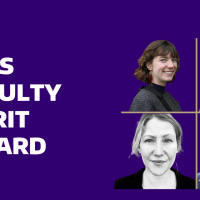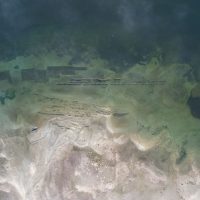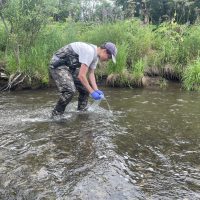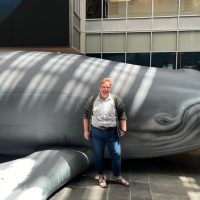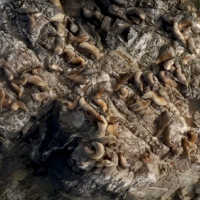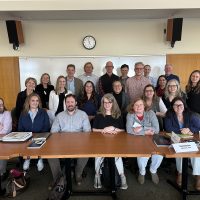Filter Results
Congratulations to the recipients of the SAFS Faculty Merit Award
Congratulations to the four recipients of the SAFS Faculty Merit Award, awarded to outstanding scholars and members of the SAFS community: Emma Meyer (BS), Liz Allyn (MS), Amelia DuVall (PhD), and Kristin Privitera-Johnson (PhD).
Read moreChanging waters, changing views: Stakeholder perspectives on ocean acidification and adaptations in shellfish aquaculture
Shellfish aquaculture is a vital industry in the US, but one which faces mounting challenges threatening both productivity and business viability. Research often fails to align with growers’ immediate needs, so to close this gap, a team led by Connor Lewis-Smith set out to document how industry participants perceive ocean acidification threats and evaluate emerging adaptation strategies that are actively being researched.
Read moreCall for Applications: Erasmus+ KA171 Graduate Student Mobility Fellowship
Are you interested in advancing your academic and research experience in marine ecophysiology and environmental chemistry while immersing yourself in Italian culture? The University of Washington and the University of Milano-Bicocca (UNIMIB) are excited to announce a fellowship opportunity through the Erasmus+ KA171 program. Apply by May 26th, 2025.
Read moreCoursework, capstone, and connections: The multi-dimensional nature of the SAFS undergraduate degree
For many students about to embark on their undergraduate journey at university, they plan to study one thing but end up studying something completely different. This was the case for SAFS undergraduate, Ryan Luvera. Ryan is currently undertaking his capstone research project, focusing on improving salmon abundance estimation models using eDNA.
Read moreBig Water Consulting Hiring Research Assistant/Intern
Big Water Consulting is pleased to offer a unique opportunity for an internship with a private, but public interest-oriented, consulting firm working on dynamic and evolving projects directly focused on enhancing the ability of tribal governments, housing authorities, and service providers use data to plan for the future and improve the communities they work for and in. One such project, the Northern Cheyenne Health and Housing Needs Assessment, is helping a tribe in rural Montana exercise its tribal data sovereignty by facilitating the tribe’s collection of data that accurately describes community conditions and preparation of reporting materials that will properly tell the community’s story and enable tribal leaders and program staff to plan for the future and attract the funding that their community needs.
Read moreZoe Rand, QERM PhD student, chosen as College of the Environment Graduate Dean’s Medalist
Zoe Rand is a recipient of this year’s College of the Environment Graduate Dean’s Medalist award, a PhD student in the Quantitative Ecology & Resource Management (QERM) Program and member of SAFS Professor Trevor Branch’s lab, using mathematical and statistical models to study the population dynamics of baleen whales.
Read moreNSF GRFP Info Session
Are you interested in applying to the NSF GRFP this fall? This five-year fellowship funds three years of your graduate education. Both undergraduate and graduate students can apply.
We are hosting an information session on the NSF GRFP to explain what it is, who is eligible for it, and a new structure for the workshop. We will also discuss the results of the most recent GRFP competition, and implications for future applicants.
Drones and machine learning help swimmers stay safe from sharks
Funded by the California Ocean Protection Council, SAFS Professor, Corey Garza, and colleagues at Stanford, UC Santa Cruz and the Middlebury Institute have embarked on a project to better understand shark and pinniped behavior off the California coast. They do this by tagging and tracking the animals, collecting background environmental data through buoys and mapping where pinnipeds gather. The goal is to understand how these variables interact and better predict when and where white sharks might be on the prowl — and, importantly, how to keep people out of the water when they are.
Read moreWDFW Hiring Two Freshwater Monitoring Technicians
The Washington Department of Fish & Wildlife is hiring two full-time, non-permanent Freshwater Monitoring Technicians.
The Freshwater Monitoring Technicians are responsible for collecting catch and angler effort data for salmon, steelhead, and other fish species in the Samish, Skagit, and Nooksack River basins (WDFW District 14) through interviews and drive-around counts. Working both independently and collaboratively, the technicians conduct biological sampling, gather field data, and engage with anglers to assess catch rates.
Educating judges on water resource science: Mark Scheuerell and Angela Dillon take part in a Judicial Education Workshop
In a time of increasing calls for Washington judges to adjudicate water conflicts that reflect the State’s growth and development, two members of the University of Washington School of Aquatic and Fishery Sciences attended the Judicial Education Workshop on Water Resource Science, held on March 28, 2025, at Washington State University (WSU). Angela Dillon, a PhD student at SAFS, gave the judges an overview of the importance of water for the environment and fish, with an emphasis on salmon and the Electron Dam on the Puyallup River, while SAFS Professor, Mark Scheuerell, gave a tour of Lower Granite Dam on the Snake River, held on March 29.
Read more